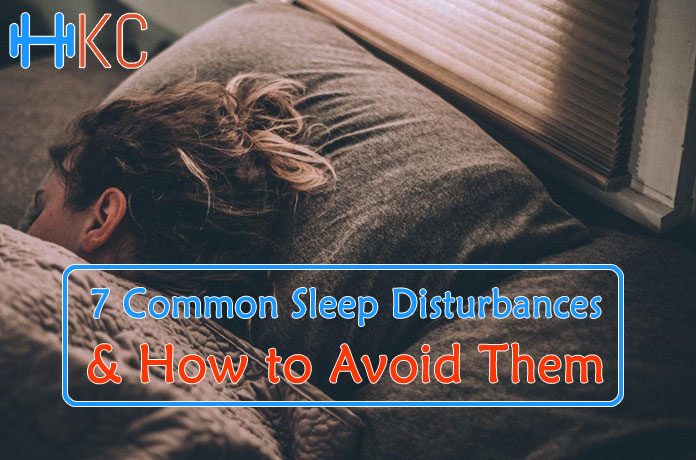7 Common Sleep Disturbances & How to Avoid Them
Getting your full quota of sleep every night is not only crucial to your ability to function the next day; it’s vital to your health. If you’re well-rested, you’ll find that you’re more alert and have better focus. With a good night’s rest, you’re unlikely to experience grogginess or crankiness closely-tied to poor sleep.
In addition to improving your productivity, good sleeping patterns keep you healthy. Research has linked regular lack of sleep to chronic illnesses such as diabetes and heart disease, and insufficient sleep is also a likely cause of obesity.
Given the importance of a good night’s rest, you want to be wary of anything that can stand between you and your rightful seven to eight hours of sleep.
1. Eating Late at Night
Your body gives you clear signs of what foods and drinks disturb your natural sleep cycles. You will likely find it easier to get quality sleep after a well-balanced, high-fiber meal than after gorging on a greasy dinner.
The later in the night you ingest high-fat, high-glucose treats, the more likely you are to experience irregular sleep cycles. Scientists point out that late eating further scrambles up the circadian rhythm your body establishes, leaving it confused as to when to shut down.
2. Stress
Do you still experience difficulty falling asleep even if you’ve eaten well, avoided caffeine, and turned in nice and early? Stress could be the culprit. According to Sleep-Foundation, “Stress and anxiety often lead to insomnia and sleep problems. By the same token, lack of proper rest can contribute to stress. And because stress and sleep problems share such a reciprocal relationship, addressing one of these issues can often lead to improvements for the other.” To address stress-related insomnia, you can increase your daily exercise, set a sleep schedule, and practice cognitive behavioral stress management.
3. Back Pain
Lower back pain is one of the more common types of pain that may cause you to toss and turn through the night. Even if you finally get some sleep, you’re unlikely to get past the light sleep stage. Not to mention, when you don’t get quality sleep, your sensitivity to pain increases, which can further churn the cycle of pain and poor sleep. You can take the edge off lower back pain with regular, targeted stretching, combined with exercise or painkillers if needed.
4. Too Much Caffeine
If your daily routine involves a liberal intake of caffeine, it could be why you’re struggling to fall asleep. Research has found that unregulated caffeine intake during the day can lead to not only difficulty falling asleep but reduced sleep quality. Unfortunately, there is no magic formula to help you determine what time of day you should stop consuming coffee if you hope to get a good night’s rest. However, most people should avoid drinking coffee within four to six hours of their target bedtime.
5. Screen Time
Screens have become an inextricable part of daily life. If you’re not staring at a monitor during your work hours, you’re peering at our smartphone for social media updates. At home, there’s always TV for entertainment or distraction.
Spending too much time glued to these screens can come back to haunt you when it’s time to turn in. The light emitted by modern screens interferes with the body’s natural circadian rhythm, especially if you expose your eyes to the blue light close to bedtime. Avoid screen altogether a couple of hours before sleeping. If you must use your screen late into the night, do so with a blue light filter.
6. It’s Too Cold
If you fail to protect yourself adequately against the cold during winter, you may struggle to fall asleep. Donning leg warmers, piling on the blankets, or using a hot water bottle should do the trick. However, if you overdo it, you might find yourself waking up sweaty in the middle of the night.
7. It’s Too Hot
During summer, you may naturally struggle to sleep due to the heat. However, if you face this challenge throughout the year, there could be another problem. If you’re not unwell and your thermostat settings are normal, the culprit could be your mattress.
Memory foam mattresses often have chemicals that trap body heat. And while latex mattresses manage heat well, many people are allergic to the material. The best mattress for cooling you down will likely be one made with breathable foam.
Prioritizing Your Sleep
Given how vital sleep is to productivity and overall health, you need to be deliberate about getting it in the right quality and quantity. If you have trouble sleeping, try to address each of the factors described above so you can identify and treat the underlying issue.
















